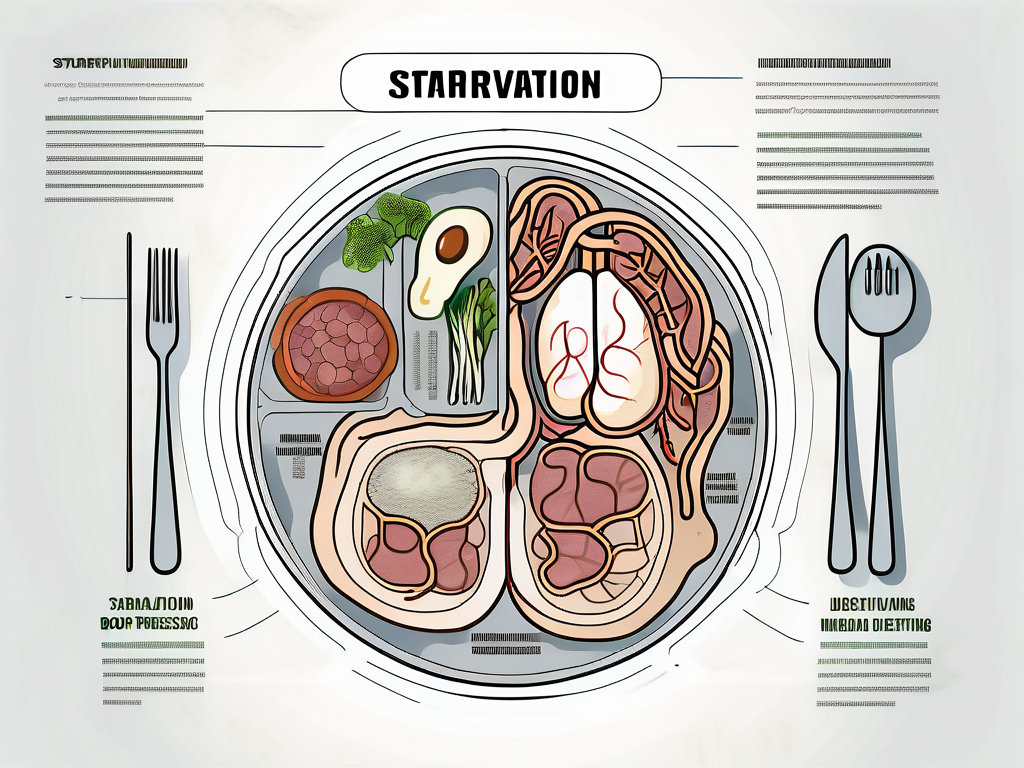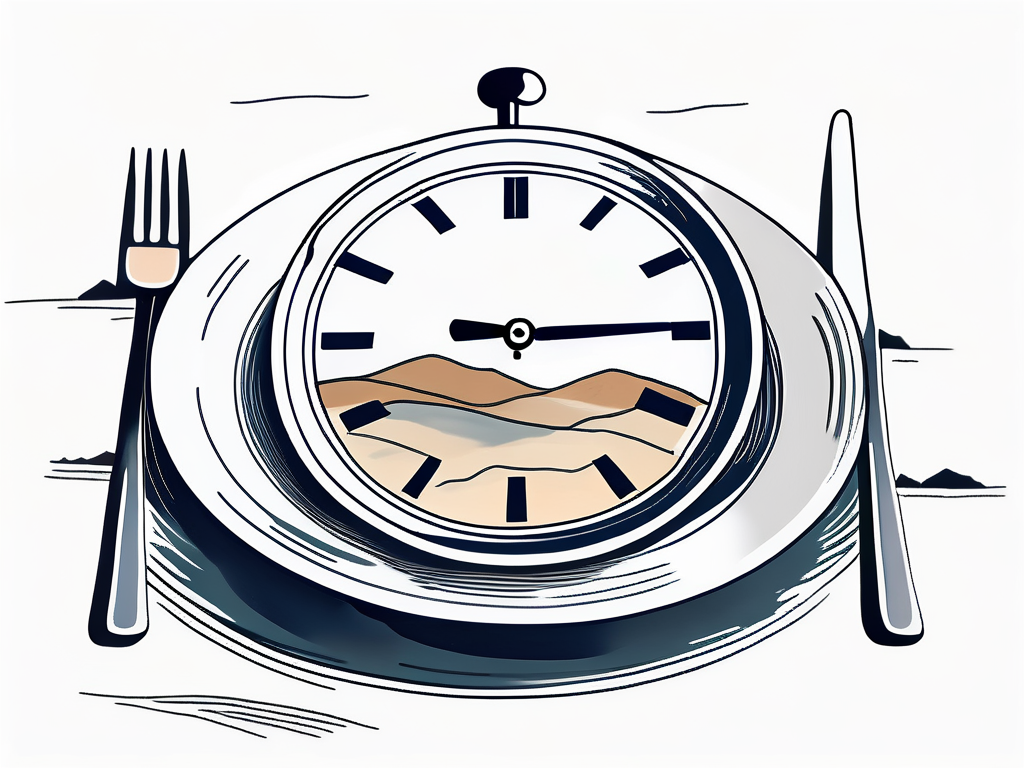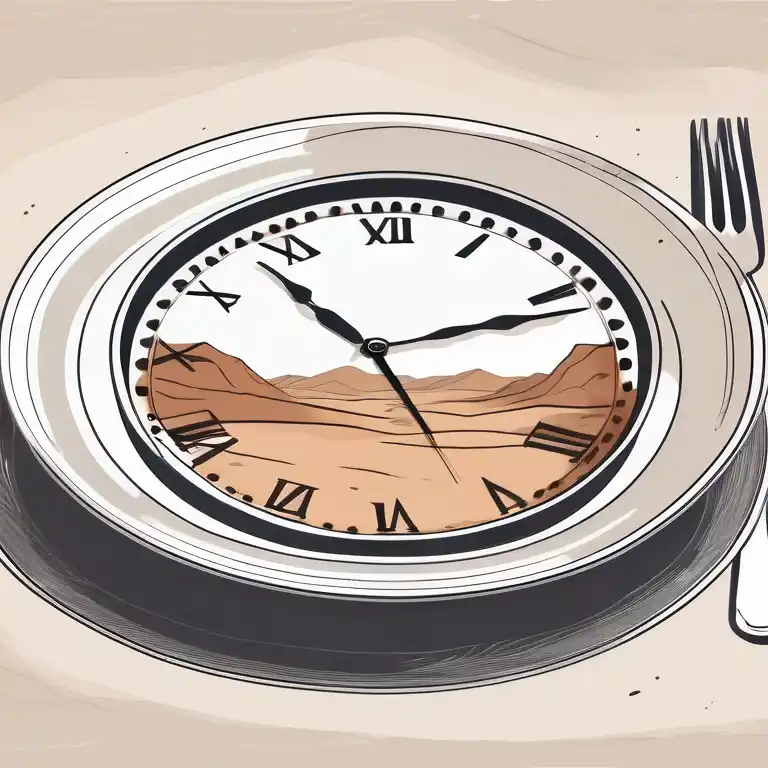In our modern world, where food is easily accessible and abundant, it’s easy to take for granted the importance of regular meals. But have you ever wondered how long you could survive without food? While the answer may vary depending on individual factors, there are some universal truths about the basics of human survival that shed light on this intriguing question.
Understanding the Basics of Human Survival
When it comes to survival, our bodies are remarkably adaptable. One of the key factors in determining how long a person can survive without food is their metabolism. Metabolism refers to the chemical processes that occur within our bodies to maintain life. It’s the way our bodies convert food into energy and use that energy to carry out essential functions.

In times of food scarcity, our body weight and metabolism play a crucial role in determining how long we can survive. It provides us with the energy we need to perform daily activities, maintain body temperature, and keep our organs functioning. Without food, our metabolism shifts gears to conserve energy and ensure our survival.
The Role of Metabolism in Survival
During a time frame of food deprivation, our bodies enter a state known as fasting metabolism. In fasting metabolism, our bodies slow down a variety of processes to conserve energy. This includes reducing the rate at which we burn calories, lowering our body temperature, and decreasing the production of certain hormones.
By slowing down these processes, our bodies can stretch the energy stores from our limited food resources for as long as possible. This is why someone with a slower resting metabolism may be able to survive longer without food compared to someone with a faster metabolism.
The Importance of Nutrients for Body Function
In addition to metabolism, the availability of essential nutrients also plays a vital role in determining how long a person can survive without food. Nutrients such as carbohydrates, proteins, and fats are the building blocks our bodies need to carry out essential functions.
Carbohydrates, for example, are our body’s preferred source of energy. They provide the fuel our muscles and brain need to function optimally. When food is scarce, the body turns to alternative fuel sources, such as stored fat, to meet its energy needs.
Proteins, on the other hand, are crucial for tissue repair and maintenance. Without an adequate intake of protein, our bodies can experience muscle wasting and a weakened immune system, making it even harder to survive in harsh conditions.
Lastly, fats are an essential component of our cell membranes and are necessary for the absorption of fat-soluble vitamins. In times of food scarcity, our bodies rely on fat stores as a source of energy.
While our bodies have incredible mechanisms to conserve energy and adjust to the lack of food, the absence of essential nutrients can have detrimental effects on our overall health and survival.
The Science Behind Starvation
Starvation is a state that occurs when the body has been deprived of food for an extended period of days or weeks without food. It’s a complex process that involves various physiological and psychological responses.

The Body’s Response to Lack of Food
When faced with a lack of food, the body goes into starvation mode. It initially relies on glycogen stores, which are glucose molecules linked together and stored in the liver and muscles, for a readily available source of energy. Once these initial glycogen reserves are depleted, the body starts breaking down its own fatty tissues for energy.
This process is known as gluconeogenesis, where the body converts non-carbohydrate sources, such as amino acids from proteins, into glucose. This allows the body to continue providing energy to vital organs, such as the brain, which relies heavily on glucose for fuel.
As the body continues to break down its own tissues, it enters a stage known as ketosis. Ketosis occurs when the body starts producing ketone bodies, which can be used as an alternative fuel source by the brain and other tissues. It’s a survival mechanism that allows the body to adapt to prolonged periods without food.
The Stages of Starvation
Starvation occurs in stages, each with its own set of physiological changes. Initially, the body taps into its glycogen stores to maintain energy levels. As these stores are exhausted, the body begins utilizing its fat reserves, leading to weight loss.
After an extended period without food, the body enters a state of extreme catabolism, where it starts breaking down muscle tissues for energy. This can result in muscle wasting, weakness, and a decreased ability to perform physical tasks.
Eventually, as the body’s fat and muscle reserves continue to deplete, it enters a stage of severe malnutrition. At this point, the body’s immune system becomes compromised, making the individual more susceptible to infections and diseases.
Without intervention, prolonged starvation can lead to organ failure and ultimately, death.
Factors Influencing Survival Without Food
While the science behind survival without food is fascinating, it’s essential to recognize that individual factors play a significant role in determining how long someone can survive in such conditions.

Individual Health and Fitness Levels
An individual’s overall health and fitness levels can significantly impact their ability to survive without food. Those who are in better physical shape and have a higher muscle mass may be able to sustain themselves for longer periods compared to those who are less fit.
Physical fitness allows the body to function more efficiently, making the most of its limited resources. The average person with pre-existing health conditions may have lower resilience to periods of starvation and may experience more severe consequences in a shorter period.
Hydration and its Impact on Survival
In addition to access to food, hydration plays a critical role in survival. The human body can survive longer without food than without water. Dehydration can lead to a multitude of complications, such as electrolyte imbalances and impaired cognitive function.
Without sufficient water intake, the body’s ability to carry out its necessary functions diminishes, making it even more challenging to survive for extended periods of time.
The Psychological Impact of Food Deprivation
As important as the physical aspects of survival are, the psychological impact of food deprivation cannot be overlooked. Going without food for extended periods can have profound effects on an individual’s mental well-being.
Cognitive Effects of Starvation
One of the first cognitive effects of starvation is a decrease in concentration and mental clarity. The brain relies on glucose to function optimally, and without an adequate supply, cognitive abilities decline.
Individuals experiencing food deprivation may have difficulty making decisions, problem-solving, and remembering information. This can make survival even more challenging, as quick thinking and sharp focus are crucial in dire situations.
Emotional Responses to Lack of Food
Food has not only physical but also emotional connotations. Going without food for prolonged periods can lead to feelings of anxiety, irritability, and even depression.
For many people, food provides both comfort and a sense of security. Depriving the body of this essential aspect of life can trigger emotional responses that can further complicate the survival experience.
Long-Term Effects of Food Deprivation
While our bodies have incredible mechanisms to adapt to a lack of food in the short term, prolonged deprivation can have severe consequences.
Physical Consequences of Prolonged Starvation
One of the most immediate physical consequences of prolonged starvation is severe malnutrition. Malnutrition occurs when the body does not receive adequate nutrients in food to support its normal functions.
Severe malnutrition can lead to a weakened immune system, making it easier for infections to take hold. It can also result in blood pressure drops, brittle bones, hair loss, and compromised organ function.
Mental Health Implications of Long-Term Food Deprivation
The effects of long-term starvation extend beyond the physical realm. Prolonged hunger can lead to significant mental health implications.
Individuals who have endured extended periods without food may develop eating disorders or an unhealthy relationship with food. Moreover, the emotional trauma associated with food deprivation can have long-lasting effects on a person’s mental well-being, requiring professional intervention and support.
Conclusion
While how long a person can survive without food depends on various factors, including body mass, metabolism, individual health issues, and access to water, it’s clear that our bodies have remarkable abilities to adapt and prioritize the preservation of life. However, the absence of food for extended periods can have severe consequences, both physically and mentally. It is a reminder of the importance of nutrition and the role it plays in our overall well-being. So next time you sit down for a meal, take a moment to appreciate the life-sustaining power of food.



